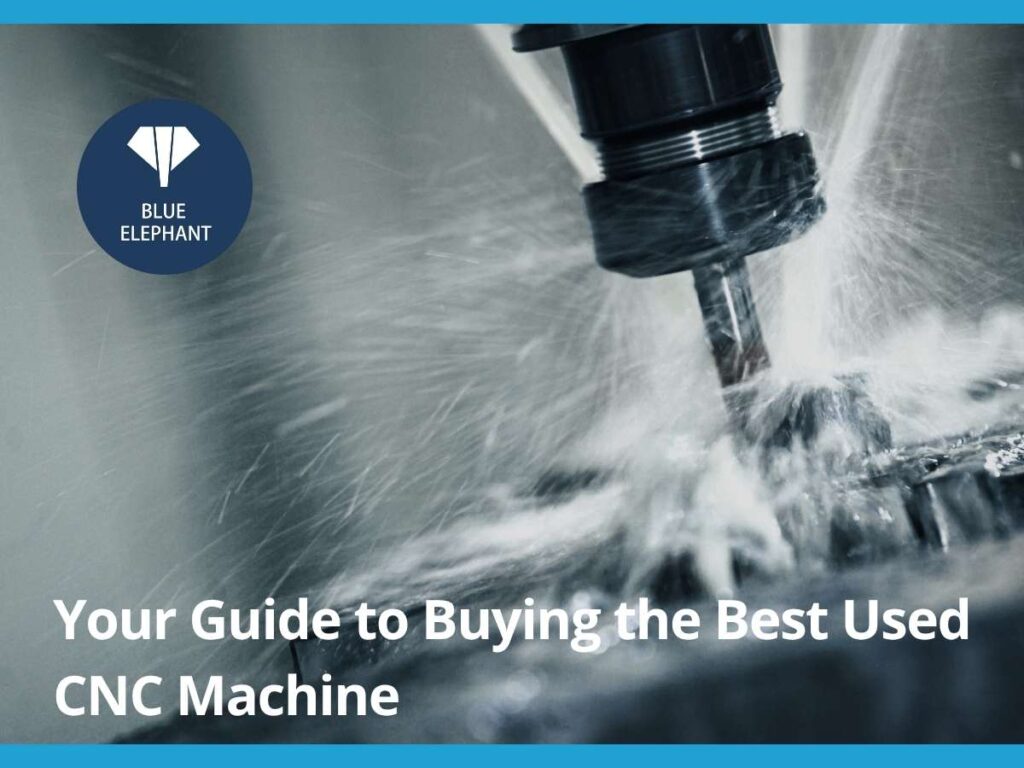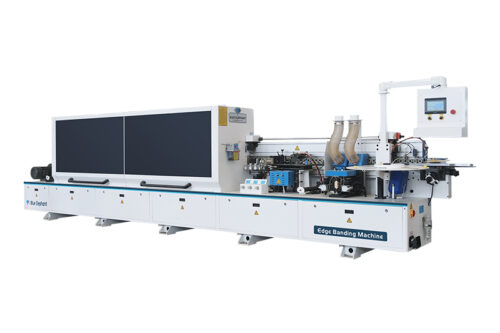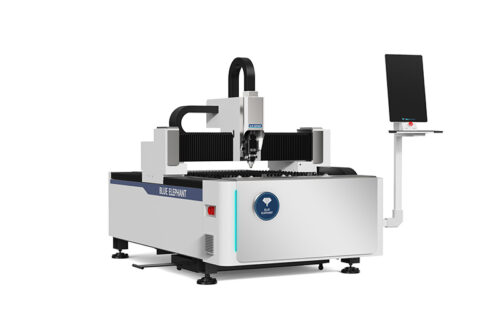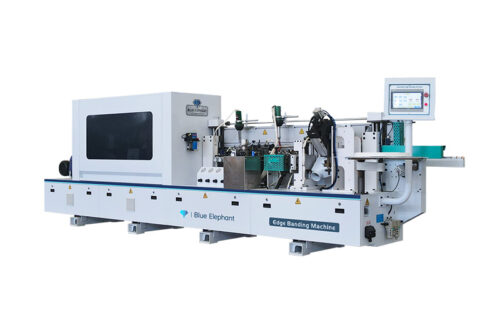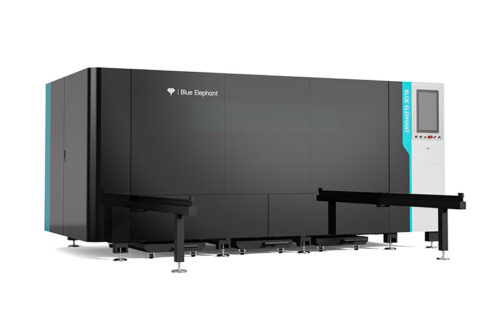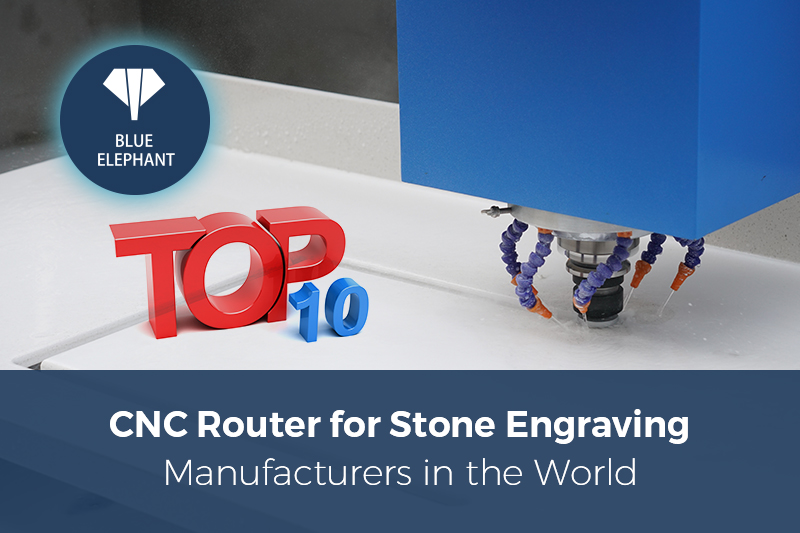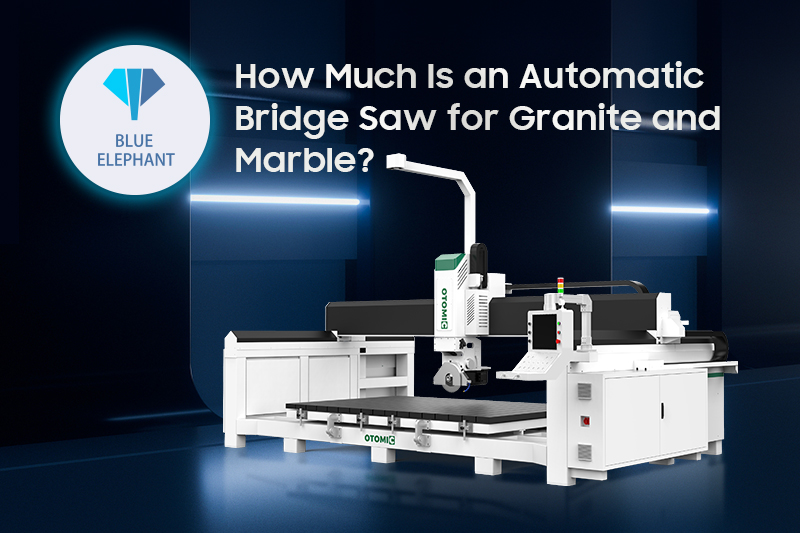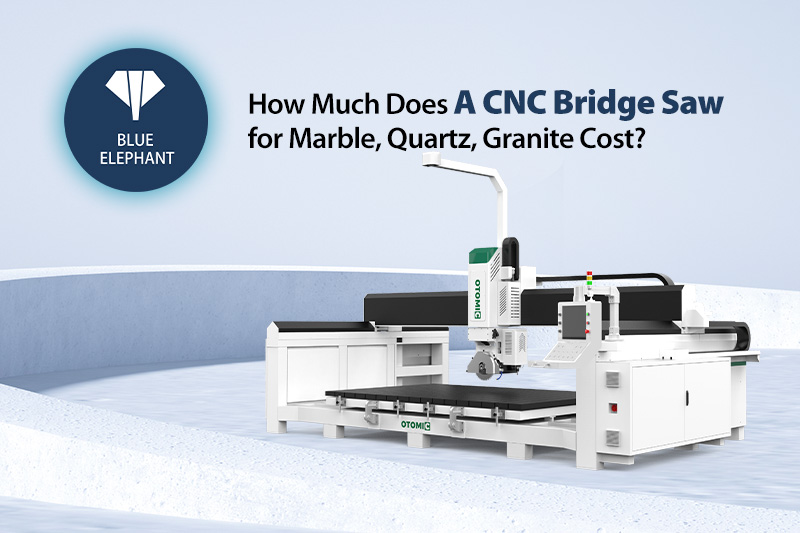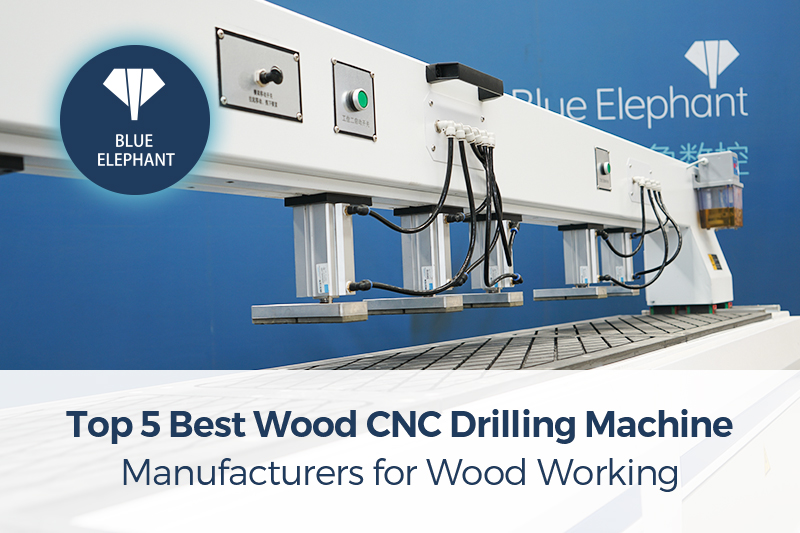My first used CNC machine seemed like a steal—until it wasn’t. The spindle wobbled, the software was outdated, and repairs ate up my savings. I thought I was getting a deal, but I ended up paying more in the long run.
That mistake taught me fast. Over the years, I spent learning from dealers, repair techs, and shop owners—figuring out what makes a used CNC machine worth buying. Now, I want to help you skip headaches.
In this guide, you’ll learn how to inspect, evaluate, and buy a reliable CNC machine without getting stuck with costly surprises.
By the end, you’ll have the confidence to find a machine that fits your budget, meets your production needs, and lasts for years to come.
So let’s start!
1. Advantages of Buying a Used CNC Machine
Buying a used CNC machine can be a smart, practical decision—and I’ve seen it pay off for many shop owners, including myself. When I was just starting out, I couldn’t afford top-tier equipment, so I took a chance on a used machine.
It wasn’t perfect, but with a little maintenance, it ran smoothly and made me money right away. That experience changed how I look at buying machines. If you’re considering going the used route, here’s why it might be the best move for your business.
Lower Cost, More Machine for Your Money
Used CNC machines let you stretch your budget. Instead of settling for something basic, you can afford a higher-end machine with better precision, power, and features.
I once helped a shop owner who thought he could only afford a small, entry-level CNC. Instead, we found him a used industrial-grade machine for nearly the same price. It was more powerful, had better tooling options, and still had years of life left. He never looked back.
No Waiting, Just Working
When you buy used, you skip the wait. I’ve been in situations where I needed a machine fast—not in a few months, but now. I found a used CNC, inspected it, and had it running in my shop within days. That machine landed me a big contract, and within a few weeks, it had already paid for itself.
Holds Its Value Longer
Used CNC machines don’t lose value as quickly as newer ones. If you buy smart and maintain your machine, you can often resell it later for close to what you paid for.
I once sold a machine I had used for 2 years. It was still in great shape, and because I had taken care of it, I sold it for almost the same price I bought it for. That’s the kind of return you don’t always get with other business investments.
Proven Reliability
Before buying any used machine, I always check service records, inspect key components, and run test cuts. I once walked away from a deal because the machine had a history of breakdowns. A week later, I found a different one with a clean history and tight precision, and it’s still running strong today.
Buying used isn’t just about saving money—it’s about getting a reliable, ready-to-work machine at a price that makes sense. If you take the time to evaluate your options, you can find a CNC machine that will keep your shop running smoothly for years.
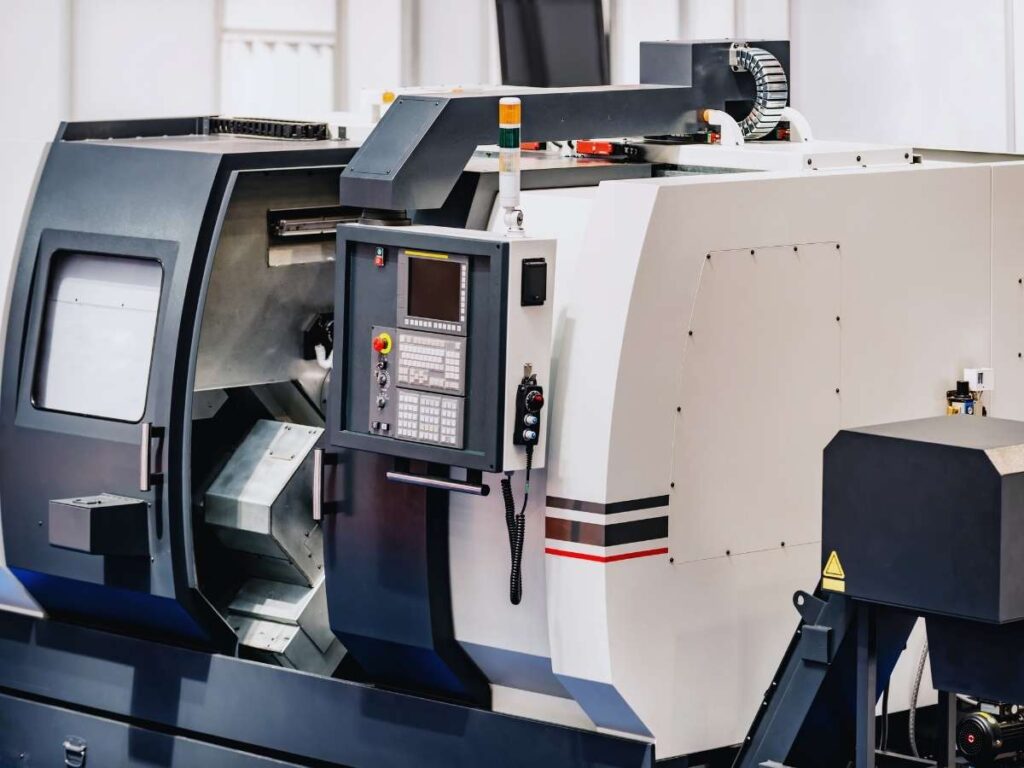
2. Disadvantages of Buying a Used CNC Machine
Buying a used CNC machine can save you money, but it also comes with risks. I’ve learned this firsthand. A few years ago, I found what I thought was a great deal—a sturdy CNC mill with all the features I needed. But within a month, I realized I had a problem.
Wear and Tear Can Cost You
The first time I ran the machine, I noticed a slight vibration in the spindle. “It’s probably nothing,” I told myself. A few weeks later, it got worse. I called a technician, and the verdict? Worn-out bearings. The repair wasn’t cheap.
Used machines have miles on them, and some wear is expected. Belts, motors, ball screws—any moving part could be near its limit. If you’re not careful, you could spend as much on repairs as you saved upfront.
No Warranty, No Safety Net
With most used CNC machines, you’re on your own. Manufacturers usually don’t offer warranties on second-hand equipment. That means if something breaks, you’re paying out of pocket. Even if the seller offers a short-term guarantee, it rarely covers major repairs. Once the deal is done, you have no official support to fall back on.
Older Machines, Outdated Tech
Technology moves fast. Some older CNC machines don’t support newer software or automation features. I’ve seen machines that still run on floppy disks! If you need modern connectivity, faster processing, or updated interfaces, a used machine might hold you back.
Spare Parts Can Be Hard to Find
Ever tried tracking down a discontinued servo motor? I have. It took weeks. Some older machines have parts that are no longer made, and when you do find them, they’re expensive. Even routine replacements, like circuit boards or tool changers, can turn into a long and costly search. If you rely on your machine for production, unexpected downtime can mean lost revenue.
Maintenance Adds Up
Used machines often need more servicing. Regular oil changes, motor tuning, and component replacements can add up over time. If you’re buying used, factor in maintenance costs so you’re not caught off guard.
A used CNC machine can be a great investment—but only if you know what you’re getting into. Take your time, inspect thoroughly, and always budget for unexpected repairs.
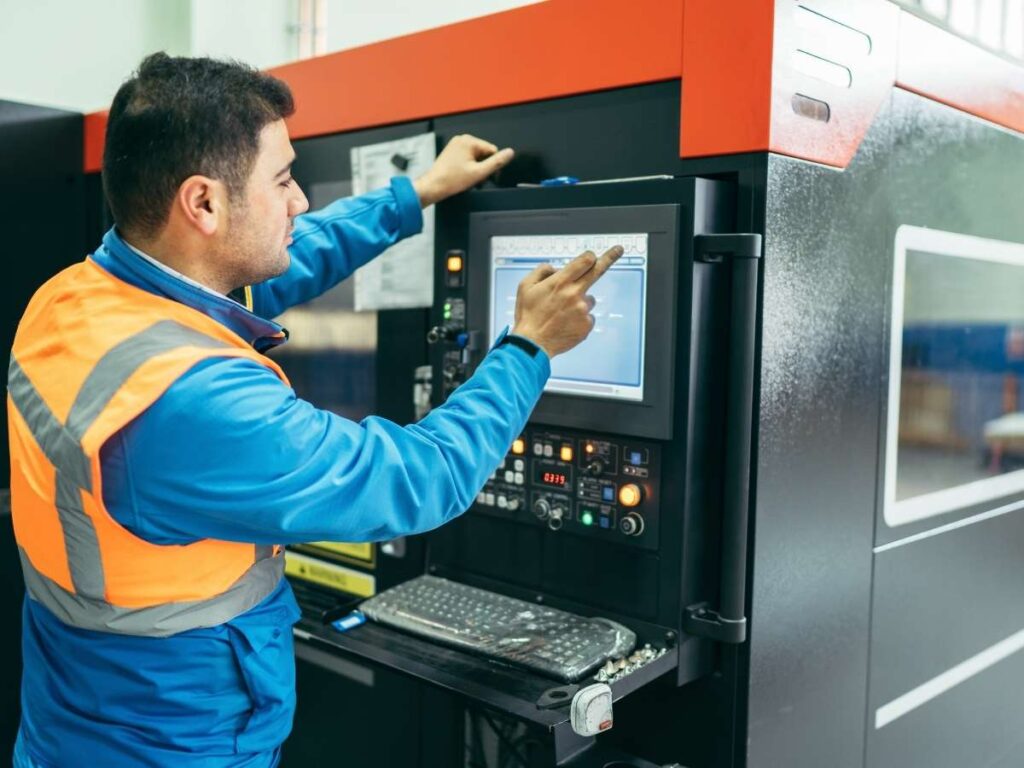
3. Factors That Affect the Price and Quality of Used CNC Machines
Not all used CNC machines are priced the same. Some cost a fortune, while others seem too cheap to be true. What makes the difference? Several key factors impact both price and quality. If you know what to look for, you can find a fair deal on a machine that still has plenty of life left.
Machine Age and Condition
The age of a CNC machine plays a big role in pricing. A machine with low operating hours and a solid maintenance history will always cost more than one that’s been run hard and neglected.
I once came across 2 identical CNC mills—same model, same year. One had been regularly serviced, with detailed maintenance logs and smooth operation. The other had a history of breakdowns, missing service records, and worn-out components. Guess which one was cheaper? But in the long run, the well-maintained machine was the better buy.
When inspecting a used CNC, check:
- Spindle hours: More hours mean more wear.
- Service records: Regular maintenance = longer life.
- Visible wear and tear: Rust, leaks, or excessive backlash can be red flags.
Brand and Model Popularity
Brand matters. Machines from well-known brands like Haas, Mazak, and DMG Mori tend to hold their value. Why? Better aftermarket support and readily available parts.
Lesser-known brands may be cheaper upfront, but repairs can be costly if parts are rare. If you’re considering an off-brand machine, research parts availability before you buy.
Features and Upgrades
A machine’s controller, automation, and retrofits can significantly affect pricing. Machines with modern controls, automatic tool changers, and precision upgrades cost more—but they also improve efficiency.
On the other hand, buying a machine without key upgrades can mean spending extra time modifying it later. If you need specific features, consider whether it’s cheaper to buy a machine with them already installed.
Seller Type
Where you buy your CNC machine impacts price and risk.
- Dealers: Often provide inspected machines with warranties or service guarantees. Their prices are higher, but you get peace of mind.
- Private Sellers: Cheaper, but riskier. You must thoroughly inspect the machine because once the deal is done, you’re responsible for any problems.
If you’re buying from a private seller, always:
- See the machine in action before committing.
- Ask for service records and machine history.
- Be ready to walk away if something feels off.
Understanding these factors helps you make an informed decision and avoid costly surprises. The right used CNC machine isn’t just about price—it’s about value.
4. Comparison: Used vs. Rental vs. Buying New
Choosing between used, rental, or buying new depends on your budget, production needs, and long-term goals. I’ve faced this decision myself. A few years ago, I had a large order come in. My current machine couldn’t keep up, and I needed a solution fast.
I looked at all three options: buying used, renting, or investing in a new CNC. Each had its benefits and drawbacks. Here’s what I found.
| Factor | Used CNC Machine | Rental CNC Machine | Buying New CNC Machine |
| Initial Cost | Lower upfront cost, often 50%–70% cheaper than new machines | Low upfront cost, only requires rental payments | Very high upfront cost, but worth it for businesses planning long-term production |
| Availability | Ready to use immediately | Available for quick use, depending on rental stock | Lead times vary, but ensures you get a machine built to your exact needs |
| Long-Term Cost | Can require frequent repairs, but still cheaper than renting | Becomes expensive over time if rented long-term | No rental fees, and maintenance costs are lower for the first few years |
| Ownership | Full ownership, allowing resale value | No ownership—must return the machine | Full ownership, giving complete control over usage and modifications |
| Resale Value | Holds value well if well-maintained | No resale value, as you don’t own it | Depreciates quickly at first but maintains better long-term value compared to used machines |
| Warranty & Support | No manufacturer warranty, only seller guarantees (if any) | Typically includes maintenance and support from rental company | Full manufacturer warranty, service agreements, and direct technical support |
| Technology & Features | May lack modern features or software compatibility | May be outdated or limited in functionality | Latest technology, automation, and energy efficiency for maximum productivity |
| Maintenance & Repairs | Higher maintenance costs if the machine is older | Maintenance is included in rental agreement | Lower maintenance costs initially, and backed by manufacturer support |
| Customization | Limited to existing configurations, unless upgraded manually | Usually not customizable | Fully customizable to fit your production needs |
| Best For | Businesses needing a budget-friendly long-term solution | Short-term projects, occasional use, or companies testing machines before purchase | Serious manufacturers, high-volume production, and companies looking for maximum efficiency and long-term reliability |
5. Maintenance and Support Challenges for Used CNC Machines
Buying a used CNC machine can save you money, but keeping it running is another story. Unlike new machines that come with full warranties and support, used ones often have hidden maintenance issues. If you’re not prepared, these challenges can add up fast.
Uncertain Service History
One of the biggest risks with a used CNC is not knowing how well it was maintained.
- Were the bearings and ball screws lubricated regularly?
- Was the spindle overloaded too often?
- Did the previous owner replace worn-out parts or just patch them up?
Without full maintenance records, you’re guessing. Some sellers provide history reports, but many don’t. That means you might inherit someone else’s neglected machine without realizing it.
Limited Technician Availability
Not all repair techs are familiar with older CNC models. Some brands require specialized knowledge, and finding the right technician can be a challenge.
I once had a machine go down, only to find out the nearest expert was in another state. The downtime cost me time and money—something no shop owner wants to deal with.
Software and Controller Issues
CNC technology evolves fast. Older machines might not support modern software, making it harder to integrate into your workflow.
- Some run on outdated operating systems that don’t receive updates.
- Others require expensive controller upgrades just to work with modern CAD/CAM programs.
Before buying, check the software compatibility. A machine that can’t handle your files isn’t worth the savings.
Higher Repair Costs
A used CNC might come cheap, but repairs can be pricey.
- Replacing a spindle motor or linear rails can cost thousands.
- If a critical part fails, downtime can stretch for days or weeks.
- Some machines have discontinued parts, making replacements even harder to find.
Preventative maintenance is key. If you’re buying used, budget for unexpected repairs and have a plan for keeping the machine in top shape.
Used CNC machines can be great investments, but maintenance challenges can quickly eat into your savings. Know what you’re getting into—and make sure you have a backup plan.
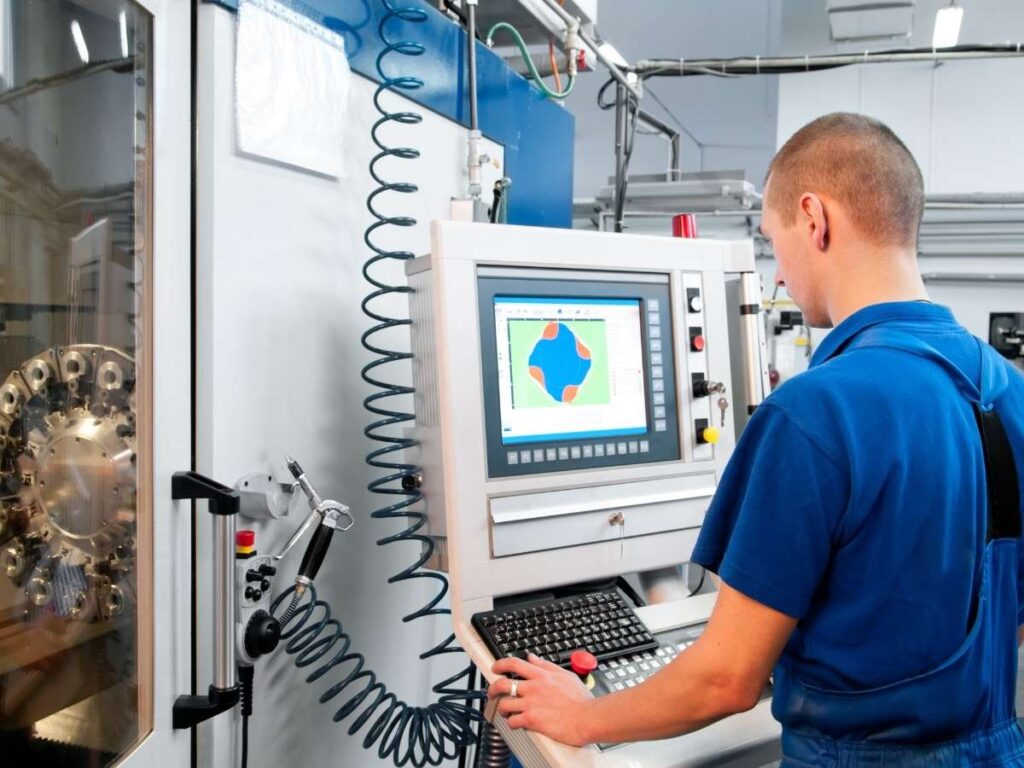
6. Why Buying a New CNC Machine May Be the Better Option
I remember when I needed to upgrade my shop’s CNC machine. I had two choices—buy used to save money or invest in something brand new. At first, a used machine seemed like the better deal. But after factoring in repairs, outdated software, and downtime, it became clear that buying new was the smarter choice.
Long-Term Reliability
A new CNC machine means no surprises. No worn-out components, no hidden service history, and no previous owner who may have cut corners on maintenance. A fresh machine straight from the factory is built for durability, with everything working at peak efficiency. That means fewer breakdowns, smoother operation, and a longer lifespan. When production depends on a reliable machine, knowing it’s in perfect condition from day one makes all the difference.
Better Performance & Efficiency
Technology moves fast, and CNC machines are no exception. New models are faster, more precise, and more automated. A machine with modern controllers and updated software can cut parts more efficiently, reducing waste and increasing output.
At Blue Elephant, new CNC machines come equipped with advanced automation, high-speed spindles, and user-friendly controls. These improvements not only make machining more efficient but also help operators reduce setup time and maximize productivity. An outdated machine may still get the job done, but it won’t match the speed, accuracy, or automation of a new one.
Manufacturer Support & Warranty
Buying a new CNC means having direct access to technical support. If something goes wrong, the manufacturer is there to help with troubleshooting, parts replacement, and software updates.
At Blue Elephant, every new CNC machine comes with full warranty coverage and dedicated after-sales service. Their team provides training, remote diagnostics, and ongoing support to make sure machines keep running at peak performance. With a used machine, every issue falls on you. Finding technicians, ordering rare parts, and fixing problems on your own can quickly become stressful and expensive.
Lower Maintenance Costs
A well-maintained machine keeps a business running smoothly, but older machines require more upkeep. New CNC machines need less maintenance in the first few years, reducing the risk of sudden breakdowns. Fewer repairs mean lower costs and more time spent machining instead of troubleshooting. When every minute of downtime means lost revenue, having a machine that runs reliably with minimal intervention is a huge advantage.
Future-Proof Investment
Manufacturers constantly update CNC technology, and new models come with features that make production easier and more efficient. New machines are designed to integrate with modern software, automation systems, and energy-saving features. With an outdated machine, upgrading often means costly retrofits, and some older controllers don’t support newer software at all. A new CNC machine is an investment in the future, ensuring it remains compatible with evolving industry standards.
Conclusion
You now know the pros and cons of buying used, renting, or going new. The question is: What will work best for you?
For me, trying to save money with a used CNC ended up costing me more. A new machine may seem like a big investment, but it’s one that pays off in reliability, efficiency, and long-term savings.
Your business deserves the best.
Are you ready to invest in a machine that works for you, not against you?
Contact us today to get started.
More Guides and Tips to Explore
If you’re looking for more insights, we’ve put together a list of helpful articles that you might enjoy:
Still haven’t found what you’re looking for? Don’t hesitate to contact us. We’re available around the clock to assist you.


